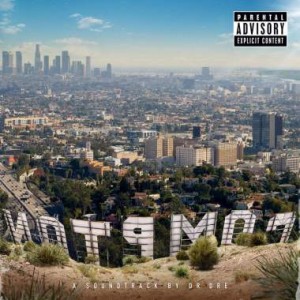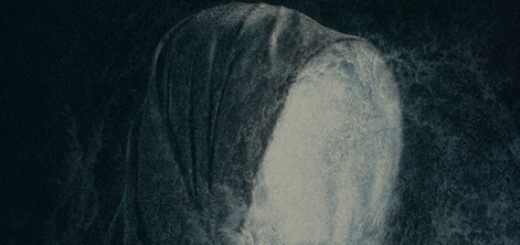COMPTON by Dr. Dre
Genre: West Coast Hip Hop, Gangsta Rap
Favorite Tracks: “Just Another Day”, “Loose Cannons”
It is an indisputable fact that Dr. Dre can count himself among the upper echelon of rappers in terms of visibility and presence in the public consciousness. Bizarre participation in World Class Wreckin’ Cru aside, Dre was a founder of the gangsta rap sound pioneered by N.W.A., a group that became legendary due to the lasting political and social impact of their music. Mostly relegated to the producers deck while a part of N.W.A., Dre split up with the rest of the group due to a royalties dispute, and firmly placed his foot in the door as a solo artist with 1992’s THE CHRONIC, inarguably one of the west coast’s most seminal hip hop records. Not emerging again until 1999 with 2001, another critical and popular success, the world was hungry for the next album, ostensibly titled DETOX.As you’ve probably heard by now, DETOX will never see the light of day. The mythical follow up to 1999’s 2001 was determined by the good doctor himself to be of inferior quality, and was officially scrapped with the pseudo-surprise release of COMPTON. However, much like Guns N’ Roses abysmal CHINESE DEMOCRACY, this legendary theoretical album (the theory being the next project after 2001) can only hope to disappoint thanks to the sixteen years of hype building up for its release.
It’s 2015. The current racial and social climate is one of immense sadness, hurt, anger, and strife. The news is inundated every day with the inequities of the selfish and the tyrannies of evil men in terms of prejudice and ignorance. And yet, an album titled COMPTON, released as a companion piece to the biopic of a hip hop group which found success in a similarly terse social climate, relegates its social commentary to a scant handful of tracks, with only one (“Animals”) dedicated to the topic in its entirety? COMPTON is an exceptionally disappointing album in terms of thematics, and feels like an entirely wasted opportunity. The world was waiting with bated breath for its release, and Dr. Dre could have made poignant and salient observations that would have challenged the perceptions of a wide spread audience, much like Kendrick Lamar did with March’s masterful TO PIMP A BUTTERFLY. Instead, we’re treated to track after track of mind-numbing incantations of personal wealth and success (“Talk About It”, “All In a Day’s Work”, “Darkside / Gone”, “Deep Water”, “One Shot, One Kill”, etc.).
What is the value of yet another commentary on how many hip hop artists portray themselves as having wealth they don’t actually possess (“Satisfiction”)? Why should a modern audience care about yet another rapper’s details regarding their relationship with money (“For the Love of Money”)? Is it necessary to remind an audience yet again that you grew up poor and now have more wealth than you reasonably know what to do with (“Talking To My Diary”)? This is what Dr. Dre’s concerned about in modern times? The album’s not a total loss in terms of addressing societal problems, as “Animals” offers a scathing criticism of the media portrayal of blacks during times of protest, The Game offers a vision of a slice of life in modern-day Compton on “Just Another Day”, and Cold187um creates the most harrowing track of the album when he details being driven to self-harm and homicide due to the pressure cooker he finds himself in (“Loose Cannons”), but these moments are all too few and far between.
As far as the actual music, COMPTON succeeds to a larger degree. Although the requisite G-Funk sound that listeners were hoping would re-emerge fails to, the current conception of the West Coast’s aural production (beats mining funk, soul, and jazz) make notable appearances on a handful of tracks (“It’s All On Me”, “All in a Day’s Work”, “Animals”). In addition, Dr. Dre still demonstrates a certain level of aggression and creativity as a producer on tracks such as the intense “Talking To My Diary” and the light, jazz-influenced “Loose Cannons”. Unfortunately, the production that aims to incorporate the heavy trap influence of modern hip hop falls almost entirely flat (“Talk About It”, “Deep Water”). In terms of rapping, Dr. Dre rarely impresses (perhaps on the closing verse of “It’s All On Me”), but he certainly holds his own against the no-name features (such as King Mez and Anderson.Paak) that he employs extensively. However, it’s somewhat embarrassing to see an old king of the scene lapped so easily by Kendrick Lamar, who manages to salvage COMPTON every time he graces the audience’s ears. On this note, the communal group nature of the album is undeniably fun, and the appearance of several hip hop heroes of yesteryear (Ice Cube, Xzibit, Snoop Dogg) offers a nice sense of fan service. That being said, it’s hard to take many of their “returns” seriously, considering the respective career moves of the featured artists as they’ve progressed into middle age (the most surreal moment on the album occurs when Snoop Dogg, who’s willingly collaborated with “Gangnam Style” superstar PSY, commiserates that his label schedules him with too many disparate features).
Many of them relegate themselves to reflecting back upon how things used to be, and this is where the album becomes legitimately enjoyable. Dre’s regular reflections upon his time in N.W.A., and his consistent incorporation of Eazy-E related content are surprisingly heart-wrenching, and even Eminem manages to land an emotional punch when he implores Dr. Dre to “make the bass pump and let the tape run for old time’s sake”. Of course, being Eminem, he ruins the goodwill he accumulates with his career retrospective verse by making a joke about making a woman he rapes orgasm. In addition, COMPTON features a unique technique of switching the beats up to compliment the contributions of each respective artist, which works to a surprisingly universal degree and proves itself as effective.
At the end of the day, COMPTON is the snot-nosed younger brother of TO PIMP A BUTTERFLY. Despite presenting itself with an ostensibly relevant message and a self-serious nature, more often than not COMPTON consists of a group of old friends trading bars and remembering their glory days. These elements are far more successful than it’s mostly half-baked opinions on race relations, and perhaps this would have enjoyed acclaim as a West Coast equivalent to one of those Wu-Tang Clan off-shoot albums where Method Man, Raekwon, and Ghostface Killah meet up to complain about being grumpy old men. Nevertheless, as it stands now, COMPTON is impotent, flaccid, and unimpressive.
Verdict: Do Not Recommend




